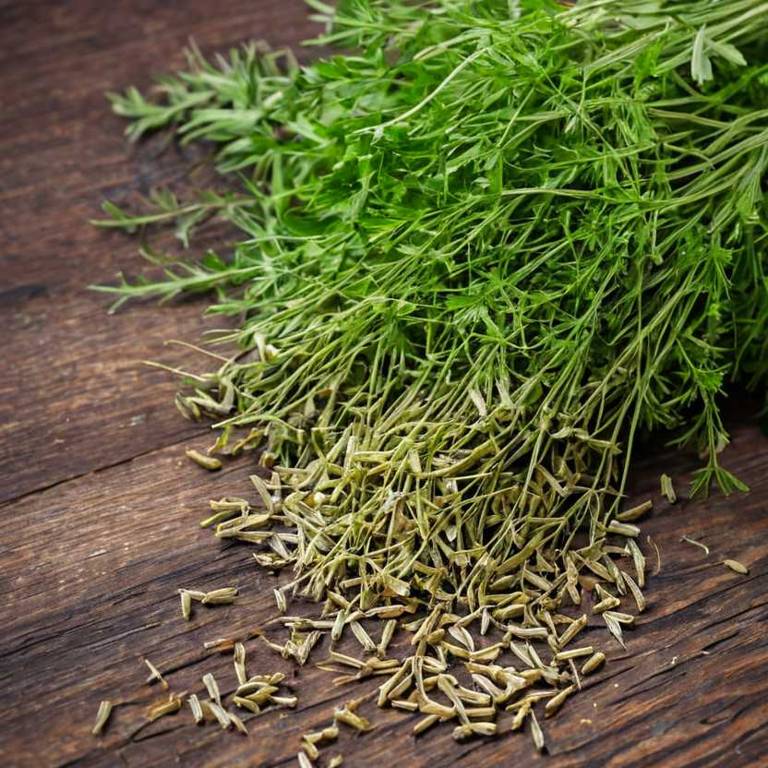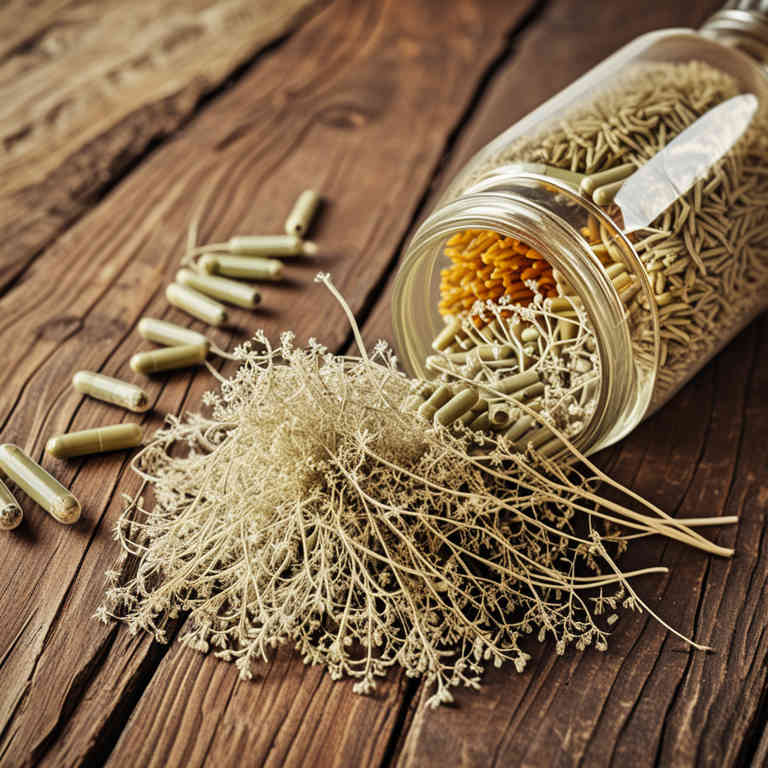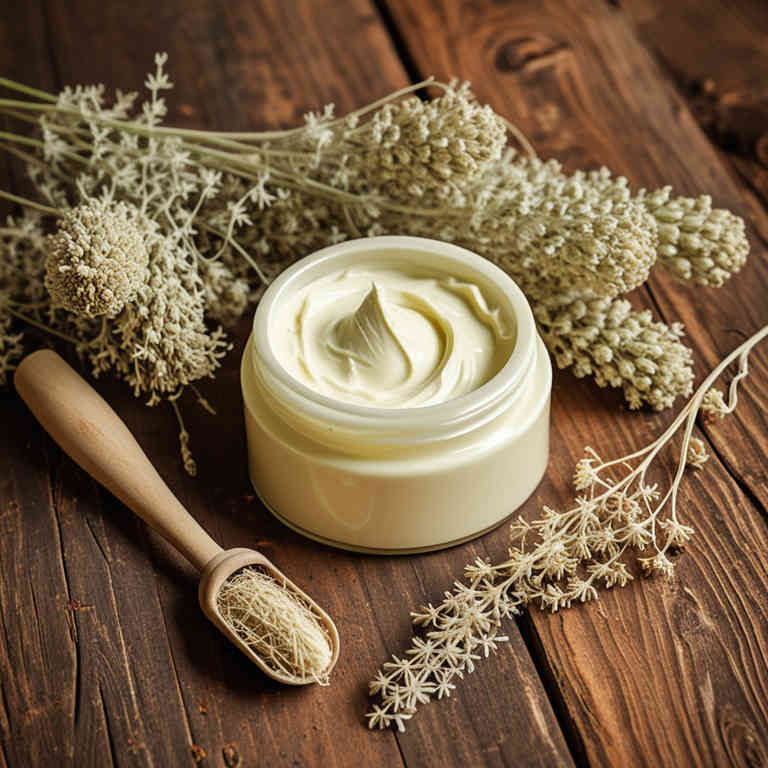10 Best Foeniculum Vulgare Preparations

The best medicinal preparations of Foeniculum vulgare are teas, decoctions, tinctures, oils, and essential oils, each offering unique therapeutic benefits.
Teas made from dried seeds are commonly used to aid digestion and relieve gas.
Decoctions involve simmering the seeds to extract more potent compounds, often used for respiratory support.
Tinctures provide a concentrated form of the herb, useful for addressing digestive issues and nausea.
Essential oils derived from the plant are valued for their aromatic properties and can be used in aromatherapy or diluted for topical applications.
Below there's a list of the 10 best herbal preparations of foeniculum vulgare for medicinal purposes.
1. Teas
Foeniculum vulgare teas is commonly used to aid digestion, relieve bloating, and soothe gastrointestinal discomfort.
It is also used to support respiratory health by alleviating symptoms of coughs and colds. Additionally, it is often consumed to promote lactation in nursing mothers and to reduce stress and anxiety. The most common ailments treated with this herbal preparation include indigestion, flatulence, bronchitis, and menstrual cramps.
The bioactive constituents responsible for its medicinal properties include volatile oils such as anethole, limonene, and phellandrene, as well as flavonoids and essential minerals like potassium and iron.

2. Decoctions
Foeniculum vulgare decoctions is commonly used to relieve digestive issues, such as bloating, gas, and indigestion.
It is also used to support respiratory health by alleviating symptoms of coughs and bronchitis. Additionally, it has been traditionally employed to reduce menstrual cramps and ease symptoms of menopause. The most common medicinal uses include treating gastrointestinal disorders, respiratory conditions, and hormonal imbalances.
The bioactive constituents responsible for these effects include essential oils like anethole, flavonoids, terpenes, and phenolic compounds, which possess anti-inflammatory, antispasmodic, and carminative properties.

3. Tinctures
Foeniculum vulgare tinctures is commonly used to aid digestion, relieve gas, and support respiratory health.
These preparations are often employed to treat ailments such as indigestion, bloating, flatulence, and coughs. The bioactive constituents responsible for these medicinal properties include volatile oils like limonene and anethole, as well as flavonoids and phenolic compounds. These compounds exhibit antispasmodic, carminative, and mild antiseptic effects.
Tinctures of fennel are also believed to have mild estrogenic properties, making them useful in alleviating menopausal symptoms.

4. Oils
Foeniculum vulgare oils is commonly used to relieve digestive issues, such as bloating, gas, and indigestion, due to its carminative and antispasmodic properties.
It is also used to treat respiratory conditions like coughs and bronchitis, as well as to alleviate symptoms of nausea and motion sickness. The oil is often applied topically for muscle pain and inflammation, and it has been traditionally used to support liver function and detoxification. The bioactive constituents responsible for these effects include volatile oils such as limonene, anethole, and fenchone, which have antimicrobial, anti-inflammatory, and antioxidant properties.
Additionally, compounds like apiol and phellandrene contribute to its therapeutic effects by promoting digestion and reducing spasms.

6. Syrups
Foeniculum vulgare syrups is commonly used to relieve digestive issues, such as bloating, gas, and indigestion.
It is also used to soothe respiratory conditions like coughs and bronchitis due to its expectorant properties. Additionally, it may help in reducing nausea and promoting appetite. The most common medicinal uses include treating gastrointestinal disorders, respiratory infections, and as a carminative.
The bioactive constituents responsible for these effects include essential oils like anethol, limonene, and phellandrene, as well as flavonoids and vitamin C, which contribute to its anti-inflammatory, antioxidant, and antispasmodic properties.

7. Capsules
Foeniculum vulgare capsules is commonly used to support digestive health, relieve gas and bloating, and alleviate symptoms of indigestion.
These capsules are also used to treat conditions such as flatulence, colic, and mild gastrointestinal discomfort. The bioactive constituents responsible for these effects include compounds like anethole, limonene, and fatty oils, which have carminative, antispasmodic, and mild anti-inflammatory properties. Additionally, they may help in reducing nausea and promoting the secretion of digestive enzymes.
This herbal preparation is often utilized in traditional medicine for its soothing and supportive effects on the digestive system.

8. Lozenges
Foeniculum vulgare lozenges is commonly used to relieve symptoms of respiratory tract infections, such as coughs, sore throats, and bronchitis, due to their expectorant and anti-inflammatory properties.
They are also used to soothe digestive issues like bloating and indigestion, and to support overall digestive health. The most common medicinal uses include treating respiratory conditions, digestive disorders, and as a mild carminative. The bioactive constituents responsible for these effects include essential oils like anethol, limonene, and fenchone, along with flavonoids and phenolic compounds that exhibit antioxidant, anti-inflammatory, and antimicrobial activities.
These compounds work synergistically to provide the therapeutic benefits associated with fennel lozenges.

9. Creams
Foeniculum vulgare creams is commonly used to alleviate digestive issues, skin irritations, and respiratory conditions.
These creams are often applied topically to treat ailments such as eczema, psoriasis, and muscle pain due to their anti-inflammatory and soothing properties. The most common medicinal uses include reducing inflammation, promoting skin healing, and easing symptoms of digestive disorders like bloating and gas. The bioactive constituents responsible for these effects include essential oils like limonene and anethole, as well as flavonoids and vitamin C, which contribute to its antioxidant and antimicrobial properties.
These compounds work together to provide the therapeutic benefits associated with fennel-based creams.

10. Linctuses
Foeniculum vulgare linctuses is commonly used to relieve respiratory symptoms such as coughs, bronchitis, and sore throat.
This herbal preparation is often employed to soothe irritated mucous membranes and loosen mucus in the respiratory tract. The most common medicinal uses include treating coughs, bronchial congestion, and digestive issues like indigestion and bloating. The bioactive constituents responsible for its medicinal properties include essential oils such as anethol, limonene, and fenchone, which have expectorant, carminative, and antispasmodic effects.
These compounds contribute to its ability to reduce inflammation and promote expectoration.
